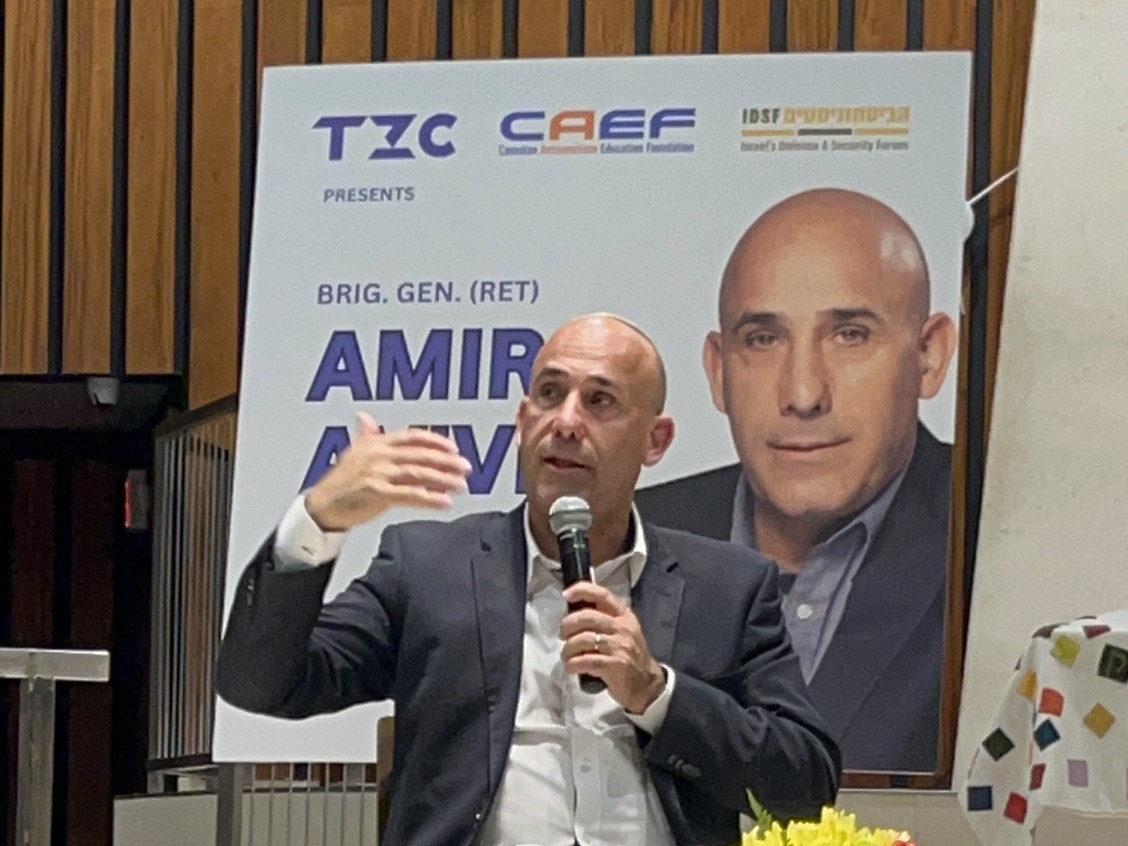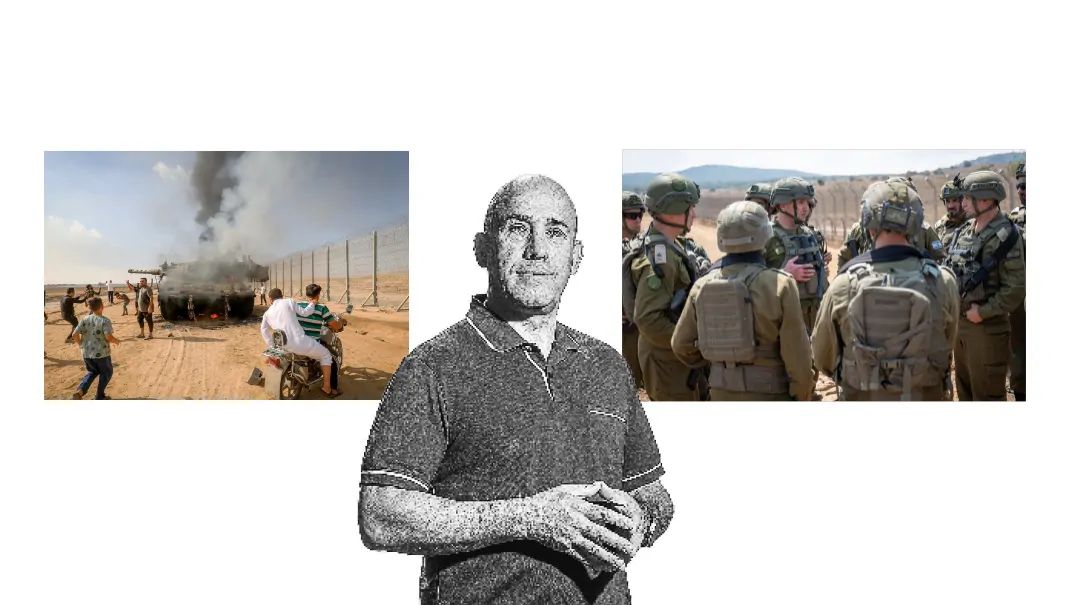Crisis in the Middle East
"Trump might seize the moment and help dismantle the 'Shia axis'.""If the U.S. builds a coalition and is willing to deal with the regime then they might embolden the Iranian people to fight the regime.""[A president Kamala Harris would have continued] with the policies of appeasement, wanting to de-escalate and ceasefire. It will simply be a harder war if Israel goes at it alone; it will take a longer time, and more people will die.""Most of the Iranians love truth, hate this regime, and will be very glad to see it go."(Retired) Brig. Gen. Amir Avivi, Israeli military
 |
Brig. Gen Avivi pointed out, in a keynote address in Toronto, sponsored by the Canadian Antisemitism Education Foundation, the Toronto Zionist council and the Israel Defense and Security Forum, that Israel's October 26 counter-terrorism offensive that destroyed some missile production facilities and air defence systems in Iran was partially successful in hampering the Islamic Republic in its manufacture of missiles, but that the "regime now is in a very sensitive moment".
In its current feelings of vulnerability the situation may have become a spur to the regime to proceed faster and further with its nuclear program, in its eagerness to build a nuclear bomb. "So the race is on. The only way we have, is to attack and destroy them, fast."
Three years following his retirement from the Israel Defense Forces after a long period of involvement in the defence of the Jewish State since 1987, Avivi founded the group, the Israel Defense and Security Forum, (IDSF), a non-partisan organization of 32,000 members of Israeli security forces. The purpose of the group is to educate and advocate for Israel's national security requirements and Middle East policies.
While he was serving in Gaza between 1997 and 1999, Avivi took note of an alarming "very fast buildup of terror infrastructure". In 2005 his position was aide-de-camp of the Chief of General Staff of the IDF, which brought him to take part in cabinet meetings with then-Prime Minister Ariel Sharon. That was the time when Israel unilaterally removed all Jewish settlements and military presence in Gaza, leaving the Strip in the hands of the Palestinians. It took little time before Gaza established itself as the political leadership of Gaza.
"I was completely against this", he reminisced; warning the Israeli cabinet at the time that it would take only a year before Gaza would become Hamasistan. He predicted that an "endless amount of weapons, technology, money, terrorists" would penetrate Gaza. He found that the Israeli public and army heads eventually "were sold on the idea" of the 2005 disengagement, many among them in the belief that the Gaza Strip could become "the next Singapore".
His group, the IDSF, released a 300-page "very detailed national security assessment" ,essentially pointing out that a "multi-pronged war is imminent." A copy of the report was given to the prime minister, to the head of the National Security Council, to the heads of Mossad and to former prime ministers. "So they knew". According to Avivi, Jihadists were "emboldened" once they saw the Biden administration's "retreat from Afghanistan" that "created momentum among our enemies".
Distractions, including five elections in three years, demonstrations against proposed judicial reforms, and an "era of prosperity" linked to the Abraham Accords led Israelis to the belief that the Middle East was relenting in its traditional hostility toward Israel. He recounted that in March 2023 his organization sent a delegation to Washington to meet with senators and congressmen on the foreign relations committee to warn them of an impending war in the Middle East.
"If you don't stand strong in the Middle East, you're going to war", was the message conveyed. Their response was that given the circumstances that resources were tied up in Asia in preparation for a potential Chinese attack against Taiwan, and that the U.S. was heavily involved in aiding Ukraine in its fight against the Russian invasion, there was little that could be accomplished in other directions at that time.
"Americans do not want the trauma of another Afghanistan, but Iran is different. Pure evil.""It can be a big win without too many repercussions, because Iran is weak.""Israel needs to win decisively on all fronts, and not give up, and not stop, and not do ceasefires.""We have an historical opportunity to really dismantle the whole Shia axis."Israeli Brig. Gen. Amir Avivi
Labels: Iran's Terrorist Proxies, Islamic Republic Nuclear Program, State of Israel, World Instability

0 Comments:
Post a Comment
<< Home